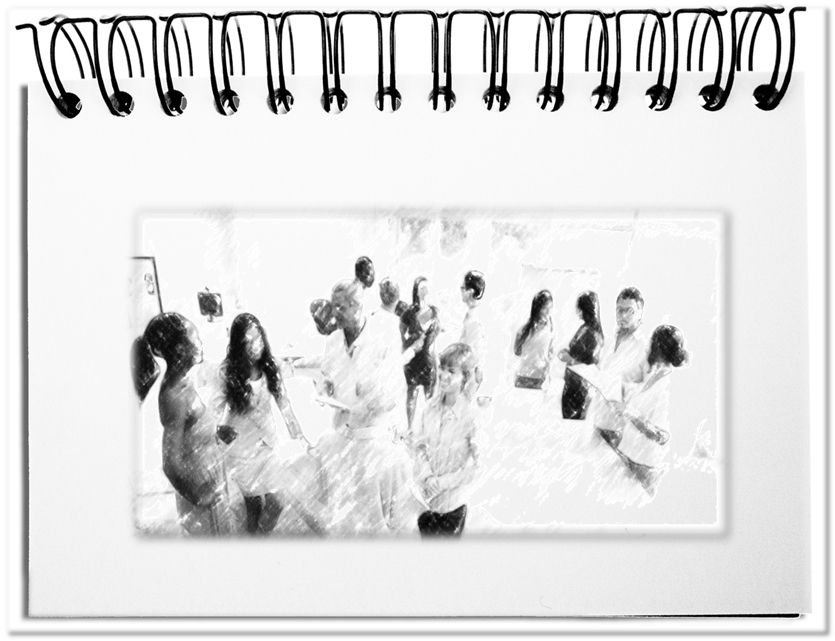As soon as people work together, it is necessary to exchange information. For executives communication is an important function in the context of their leadership tasks *1. The following aspects can be realized through respective measures.
- The self-understanding will be exchanged.
- The business model is becoming tangible for everybody.
- The future direction will be understandable.
- The tasks, the authority and the responsibility will be substantiated.
- The rumormongers are dammed through the achieved transparency.
- The common knowledge is made accessible to all.
Messages affect more and better by using the entire pallete.
The entire pallete of communication consists of the following objects: Words, pictures, sounds and events.
- Verbal exchange is determined by the choice of the words, the expression and the topic development. Which are the substantial keywords, stigma words, names, artificial terms as well as synonyms and antonyms? Which modalities should be used (e.g. must, may)? Which metaphors support the topic development?
- Visual communication consists of the choice of the motives as well as the visual aspects and laws. Which motives represent the topic (e.g. landscapes, people)? Which type of visualization is favorable? Which visual laws have an advantage (e.g. similarity, coherence)?
- Auditory exchange of information consists also of the choice of the motives as well as the tonal aspects and laws. Which motives represent the topic (e.g. language, music)? Which type of sound is favorable? Which auditory laws have an advantage (e.g. simultaneousness, harmony)?
- Meetings differ in the type and the form. Which type of communication is most suitable (e.g. event, publication)? Which form is favorable (e.g. workshop, video, discussion)?
The use of the entire pallete increases the attention and the understanding of the target group. In any topic, several elements of the pallete can be used.
*1) Further leadership tasks are the self-management, the conception, the coordination, and the cooperation

